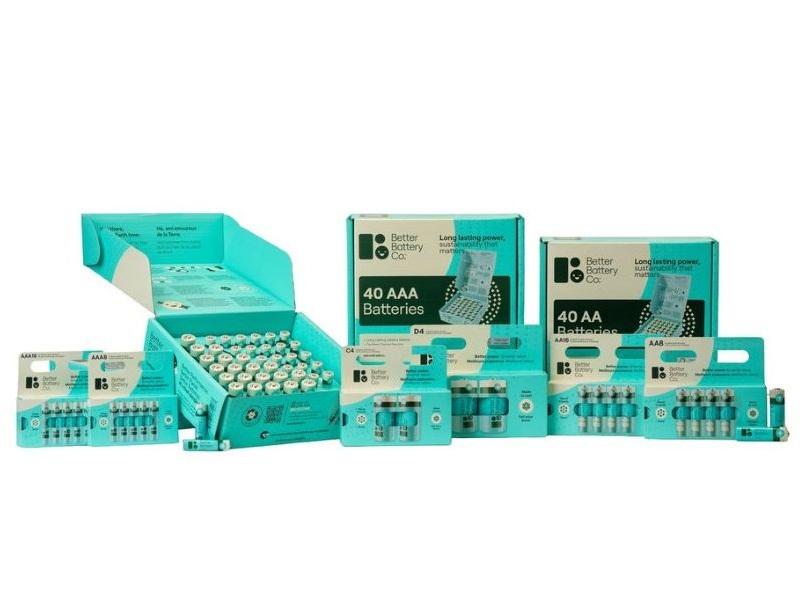
A new report released by Clean Energy Canada makes the case that Canada is lagging the rest of the world with respect to the electrification of diesel-powered bus and truck fleets.
The non-profit think tank's study, The Payload, is critical of how this country is slow-walking the decarbonization of those key segments of the transportation sector and thereby "missing out" on the possibility of both curbing air pollution and boosting the growth of our domestic EV (electric vehicle) industry.
"Despite clear upsides, Canada is firmly at the back of the pack when it comes to adoption. Just two per cent of new trucks and buses sold in Canada in 2023 were zero-emissions, compared to nine per cent globally," the report read.
According to the study, Canada can close this gap by means of additional federal and provincial purchase incentives that reduce upfront costs for fleets and operators, help build out charging networks, and impose mandates that require manufacturers to increase their percentage of zero-emission commercial vehicle sales.
The transportation sector currently accounts for approximately 25 per cent of Canadian emissions, per the report, with buses and trucks responsible for nearly half of that figure.
"The impetus behind this report is that we talk a lot about electric vehicles - the good, the bad, and the ugly - but we hardly ever talk about the electrification of the larger trucks, buses, vans on the road," Rachel Doran, vice-president of policy and strategy at Clean Energy Canada, told Sustainable Biz Canada.
Taking the impact of transport sector EV emissions seriously
The report highlighted a study in the Greater Toronto and Hamilton Area which found that a zero-emission urban delivery van would save a business between $3,800 and $4,400 per year on fuel compared to its fossil-fuel equivalent.
With respect to air quality, the study also pointed out how the air in Metro Vancouver on a weekday has more than double the amount of nitrogen oxide emissions compared to weekends owing to the significant drop in heavy-emitting commercial traffic.
"If we would electrify ten last mile delivery trucks, that would be equivalent to almost 60 households operating passenger EVs. Electrifying trucks and buses can also change public attitudes once they start appearing on the streets and show people what it's like to ride in an electric bus and interact with this technology. That's a very exciting opportunity," Doran said.
Transitioning from diesel to zero-emissions electric bus fleets
Vancouver-based Clean Energy Canada believes the provinces and their municipalities need to accelerate efforts to electrify public bus fleets.
"There are major health impacts that come from improving air quality on those heavily travelled routes," Doran said.
"When it comes to public transport, there's a public interest mandate and a realization here in Canada, among the provinces, that there are huge health dollar benefits that will follow if you're incentivizing the purchase of electric buses as part of municipal transportation systems."
Doran notes that many communities across Canada are moving ahead with plans to introduce electrified school buses and public transportation vehicles onto their roads.
"We've already seen places like Prince Edward Island make major progress - they've electrified 30 per cent of their school bus fleets. Big cities like Toronto and Vancouver have also made progress by purchasing zero-emissions buses."
"Nobody wants their kids standing next to diesel powered school buses while they are running."
Doran cautions that it will take time, however, to fully electrify bus and truck fleets as municipalities and companies need to budget for such a game-changing transition over the course of this decade.
"This won't happen overnight, but why would you ever buy a diesel bus today that's going to be on the road for many years to come when you could . . . start the process of building a fleet of zero-emissions buses that's going to reap those long term health and community benefits."
With respect to corporate fleets, Clean Energy Canada notes there are already "some good federal incentives" available to hasten the strategic ambitions of companies that have adopted sustainability guidelines and similar metrics with respect to electrification.
"There are a whole range of factors (spurring adoption) which are starting to make sense in existing business models. We believe that we'll see fully electric fleets become a reality when the use case is easily electrifiable. Once they have larger fleets, they can calculate those savings on a larger scale."
Building out Canada's zero-emissions transport sector
Clean Energy Canada believes there is a clear path forward for Canada to support its rapidly evolving EV ecosystem.
"From a Canadian public policy perspective, we should be supporting our startups by helping them maintain viability and market share. It's important for our various levels of government to lean in today to make sure we're making the business case for those companies and other early adopters to electrify their fleets because of the health, economic and domestic manufacturing benefits," Doran said.
"We anticipate that costs will continue to come down to drive the EV market. But those reductions will only come with economies of scale. Once we see companies start rolling out a lot of these (transport) vehicles, all of a sudden they will become cheaper to produce, cheaper to sell, and cheaper to buy."










